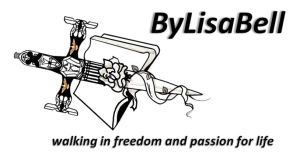Forgiven to Forgiveness
I met “Sue” not long after my divorce. Our common plight opened the door to conversation. I listened to her story, bitter anger spewing from her gaping wounds and splattering all over me.
I said, “That’s such a sad story. How long ago did your husband leave you?”
Sue didn’t hesitate. “1975.”
More than twenty years later, her failure to forgive produced a bitterness capable of driving anyone far from her.
Cancerous Unforgiveness
Many people say unforgiveness is like a cancerous tumor eating from the inside out. But did you know holding onto the past can actually cause cancer and other diseases?
Dr. Michael Barry with Cancer Centers of America discovered unforgiveness in over half of his patients. A Stanford University study supported the tendency to hold grudges with a link to illnesses. Bitterness grows like a disease and requires exorbitant amounts of energy from my physical being. Over time, it wears down the immune system, leaving me open to short and long-term illness.
Whether refusing to forgive makes me ill or not, at the very least it creates bondage often keeping me from living life to the fullest. When I wake up angry and think about negative things from my past, how can I find passion in life? When I forgive, something opens up inside.
Breaking chains
I grew tired of waking up dreading most days, with little hope and a passion tank running on empty. My only recourse was a serious look at the many hurts of my past—both given and received. Overcoming the past took a lot of forgiveness. As I sought the Holy Spirit, memories of things long forgotten bubbled up. Far from my conscious thoughts, my heart held them buried deep beneath the surface. God’s healing touch began the process, but a single session of addressing unforgiveness didn’t last forever. Each day brings new situations, and some pierce my heart or pull a scab off something I thought was gone.
Good and bad things happen to all of us. We choose what to do with the negative experiences. Long ago, I determined to choose embracing the bad stuff and learn from it instead of holding tight and becoming bitter. Yet I suppressed many of the hurts as if they didn’t matter. I used to say “it doesn’t matter” but when something hurts, it does matter. I matter. My feelings are important.
Forgiving doesn’t invalidate my feelings, nor does it mean I forget what happened or put myself in a place to let someone hurt me again. Forgiveness releases me from the chains.
Sometimes I don’t want to forgive. Then I remember I’m not forgiving for the sake of the person who hurt me. I’m forgiving for my good, and the good of those near me. Internal bitterness produces toxic waste that spews all over those I love most.
Choosing to Forgive
I must choose to forgive. Ironically, my desire to carry the grudge becomes my sin. Often the first step to healing means confessing my unwillingness to forgive. Embracing what I receive, I pass from forgiven to forgiveness—even forgiving myself, which may be the toughest battle of all.
What do you find most difficult to forgive?

No comments yet.